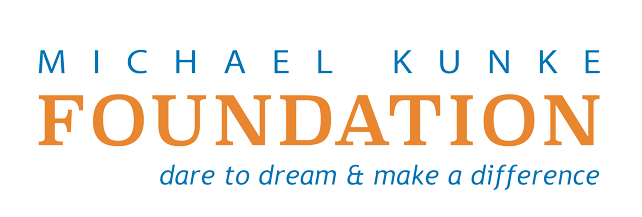Revitalising Learning Spaces for a Brighter Future
Education is a fundamental pillar for sustainable development, yet many schools in underserved communities face significant challenges that hinder effective learning. The Michael Kunke Foundation, in partnership with The Embassy of the Czech Republic in Accra and Lemon Beach Resort in Elmina, embarked on a transformative initiative—ORBIS PICTUS—to enhance long-term access to quality education in Elmina, Ghana.
Our project focused on Elmina M.A. Basic School, where 70 Junior High School (JHS) 1 students shared two overcrowded classrooms (35 students per class) within a deteriorating 40-year-old structure. The harsh learning conditions were alarming—a leaking roof left students vulnerable during rains, while a lack of windows and ventilation created an unbearably hot and stifling environment on sunny days. The wooden pillars holding up the corridor were barely stable, and years of erosion had left parts of the foundation hanging precariously. These conditions severely compromised teaching and learning outcomes, making it difficult for students to focus and for teachers to deliver lessons effectively.
A Sustainable Solution for Quality Learning
Through the ORBIS PICTUS project, a fully renovated classroom block was constructed, integrating climate-resilient infrastructure to create a safe, conducive, and inclusive learning environment. The new structure features:
-
Well-ventilated classrooms: Properly installed windows and high ceilings ensure improved air circulation, creating a comfortable atmosphere for both students and teachers. Unlike before, when the lack of ventilation made classrooms unbearably hot on sunny days, the new design allows for natural airflow, reducing excessive heat and ensuring that students can focus on their lessons without discomfort. Additionally, the sealed roof and reinforced walls prevent water leakage during the rainy season, eliminating the constant disruptions that previously forced classes to halt whenever it rained. This upgrade fosters a stable and uninterrupted learning experiencethroughout the academic year.
-
New desks and optimized classroom layout: The introduction of modern, durable desks and an improved seating arrangement has significantly addressed the issue of overcrowding. Previously, students were crammed into tight spaces, limiting movement and interaction. With spacious seating arrangements, students now have adequate personal space, allowing them to sit comfortably, take notes efficiently, and engage more actively in classroom discussions. The new layout also facilitates better teacher-student interaction, ensuring that teachers can move around freely to provide personalised attention. This improvement has positively impacted student participation, collaboration, and overall academic performance.
-
Structural reinforcements for safety and durability: The renovation project prioritized long-term stability and resilience by strengthening the building’s foundation, replacing the weak, deteriorating wooden pillars with reinforced concrete columns, and implementing erosion control measures to prevent further structural damage. These enhancements not only make the classrooms safe for learning but also extend the building’s lifespan, ensuring that future generations of students will continue to benefit from this facility. By incorporating sustainable building materials, the project aligns with global efforts to promote environmentally friendly and disaster-resilient infrastructure, guaranteeing that the school remains a secure and reliable learning space for years to come.
Impact: Advancing SDG 4 – Quality Education
The transformation has significantly improved school attendance—students are now eager to attend classes, and cases of absenteeism have dropped. The learning environment is more inclusive and student-centered, aligning with Sustainable Development Goal 4 (SDG 4), which advocates for equitable, quality education and lifelong learning opportunities for all. Teachers now have a comfortable space to deliver lessons, enhancing teaching efficiency and learning retention.
This initiative is a cornerstone project under the Michael Kunke Foundation’s Education Empowerment for Sustainable Communities (EESC) initiative, reinforcing our commitment to capacity-building and infrastructure development in education.
Sustaining the Impact: A Commitment to the Future
The success of the ORBIS PICTUS project has set the stage for further education-focused interventions. Our partners have pledged continued support for projects that bridge educational gaps, promote learning equity, and build resilient academic communities. With collective action and sustained investment, we can empower more young minds and create lasting educational opportunities in Elmina and beyond.
